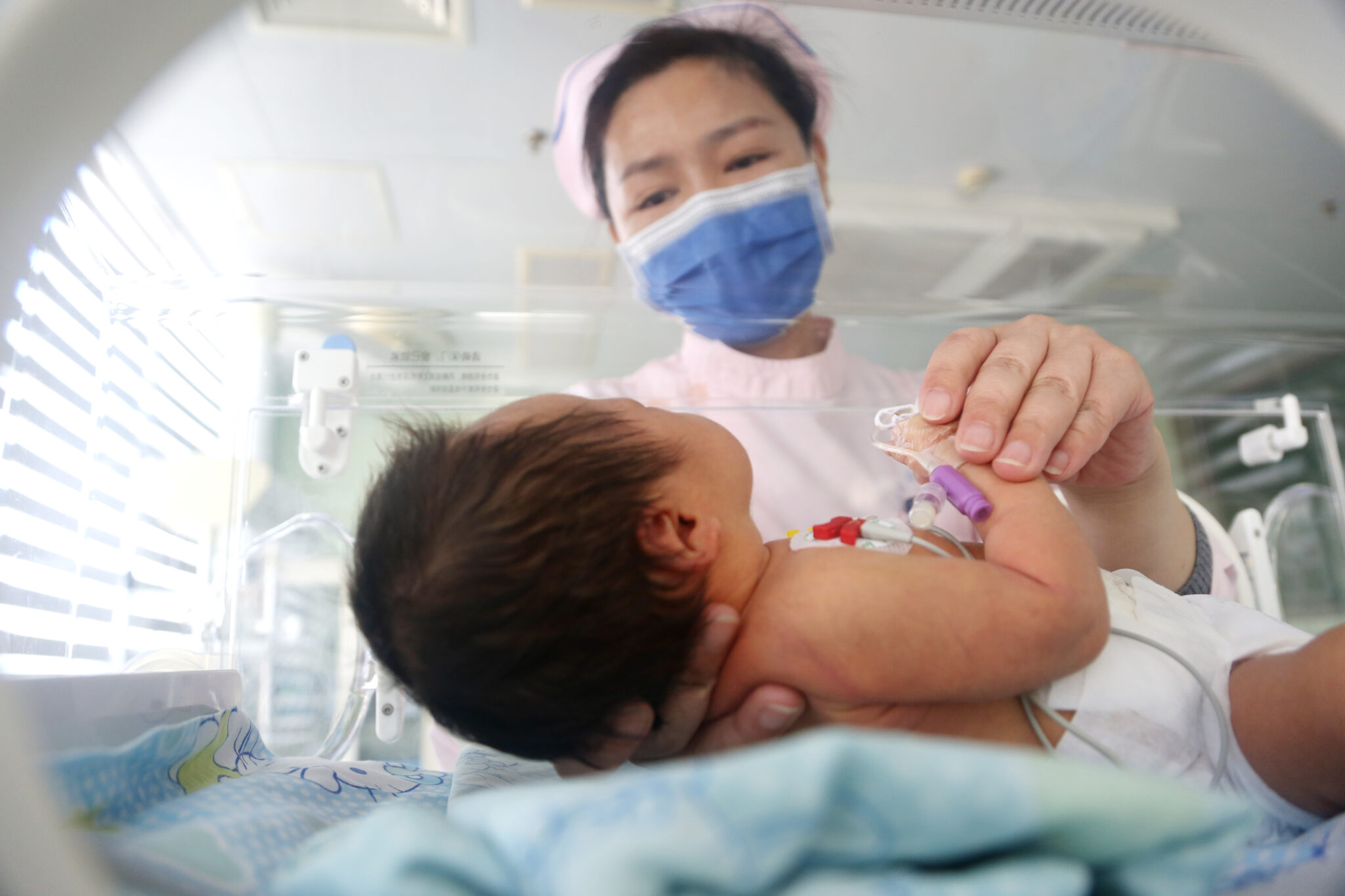Chinese health officials have started discussions about relaxing a ban on unmarried women in the country freezing their eggs. According to Chinese news outlet Caixin, the National Health Commission, the country’s top health authority, is soliciting expert opinions on the potential policy shift.
Also known as oocyte cryopreservation, egg freezing is an assisted reproductive technology used to preserve women’s fertility and delay childbearing. Developed in the 1980s, the procedure was originally designed as insurance for women receiving fertility-damaging treatment to have viable eggs later in their life. But in the past decade, amid a trend toward older motherhood and technologically aided pregnancy, the technology — no longer labeled “experimental” — has gone mainstream as a way for all women to potentially expand future childbearing options.
However, in China, the medical service still remains out of reach for single women, who are banned from undergoing fertility treatments, including in vitro fertilization (IVF), per a national policy that was promulgated in 2003.
As an exception, the northeastern province of Jilin — which has one of the lowest birth rates in the country — is the only place that currently allows unwed women to freeze their eggs, but the recipients must reach the legal marriage age and have “decided not to get married in the future, and have no children.” It’s unclear how much the policy is actually enforced: A news report by Caixin in 2018 revealed that most of the hospitals in Jilin had refused to provide the service to single women, claiming that a marriage certificate is a prerequisite for the procedure.
In 2018, a woman named Xú Zǎozǎo 徐枣枣 sued a hospital in Beijing after her request of egg freezing was declined by the facility on the basis of her unmarried status, making it the first legal case of its kind. After a four-year legal battle, Xu lost her case in 2022, with the local court ruling that the hospital had been right to refuse the request. In a recent interview with Sixth Tone, Xu, who turns 35 this year, said she had appealed to the court again.
On the other hand, China’s policy allows single men to freeze their sperm, with local governments and hospitals running several sperm banks all over the country. This difference in treatment has sparked debates about gender equality in the past, with some criticizing the government for exercising a “double standard” when it comes to reproductive rights.
In an official response made in 2020, the National Health Commission explained its opposition to single women freezing their eggs, citing high health risks related to the procedure and concerns over the potential commercialization of the technology, which would contradict the government’s firm stand against surrogacy. Some medical experts, however, pushed back on the comments, arguing that egg freezing had been a widely practiced procedure around the world and does not cause additional harm to single women in comparison to their married counterparts.
While lesbian women are not mentioned in news articles about the potential policy change, their reproductive rights are likely to be impacted by it, said a Chinese women’s rights activist who prefers to be identified as Fēngfēng 枫枫. “China does not recognize same-sex couples at all, which makes lesbian women unmarried women from a legal perspective. While they are invisible in the law and public policy, the policy change will affect them anyway,” she told The China Project.
Due to the lack of legal recognition of same-sex marriage and the restrictions over the access to assisted reproductive technologies, lesbian women in China have limited options to bear children. Many of them have to seek fertility services overseas. “Wealthy ones usually choose to go to the U.S., and those on a budget may travel to southeastern countries such as Thailand and Cambodia, where the cost of travel and medical procedures is lower,” Fengfeng said.
According to an article published by a Chengdu-based newspaper in 2022, an egg-freezing trip to the U.S. normally costs 300,000 yuan ($43,000), while the cost for a trip to Thailand is 240,000 yuan ($35,000).
Fengfeng said that those who do not want or cannot afford international medical travel would typically resort to two alternative methods. Some lesbian women choose to enter “cooperative marriage” (形婚 xínghūn) with a gay man, an arrangement that allows them to bear a child in a legally recognized heterosexual marriage. Others manage to “borrow” sperm from a male friend and accomplish a “DIY” style of fertilization process at home by placing the sperm within the ovary by themselves.
There are also people who choose to seek the treatment from private, underground clinics. However, the illicit nature of the service means additional risks and a lack of legal protection for the customers. “The existence of the underground clinics shows women’s needs. The government should recognize the needs and develop further regulations, rather than imposing a clear-cut ban,” Fengfeng remarked.
Fengfeng anticipates that the regulatory change will happen gradually. “Policy is only one factor. We also need to consider the marriage and child-rearing culture in China. The mainstream idea still presumes a link between heterosexual marriage and childbearing,” she said. “Other options are not recognized, like women who choose to be single mothers and lesbian couples who want to have children. In this regard, these groups of women are facing similar challenges.” She added that the obstacles range from securing maternity benefits to the inclusiveness of the social attitude in general.
The discussions about single women’s fertility rights comes on the heels of China’s first population decline in six decades. Officials revealed earlier this year that the country’s population had fallen in 2022 to 1.411 billion, down some 850,000 people from the previous year. The long-expected event was partially caused by the decades-long decline in Chinese fertility rates.
Strategies to boost the birth rate were a hot topic during the “Two Sessions” 2023, China’s biggest political gathering of the year, which concluded on Monday. At the meeting, Lù Wěiyīng 陆伟英, a member of the Chinese People’s Political Consultative Conference (CPPCC), the country’s top political advisory body, urged the government to allow unmarried women to access egg freezing and to include infertility treatment in the public health insurance system.

Other LGBTQ stories:
The People’s Daily’s description of homosexuality as a “Westernized lifestyle” sparked criticism on the Chinese internet (Weibo).
In an online post celebrating Michelle Yeoh (杨紫琼 Yáng Zǐqióng) winning the Best Actress Award at the Oscars 2023 for her performance in Everything Everywhere All at Once, the People’s Daily uses the phrase Westernized style to describe a lesbian character in the film. The description quickly sparked criticism on Chinese social media, with many people reading it as the government’s censorship of the word homosexuality.
Queer China is our fortnightly round-up of news and stories related to China’s sexual and gender minority population.






